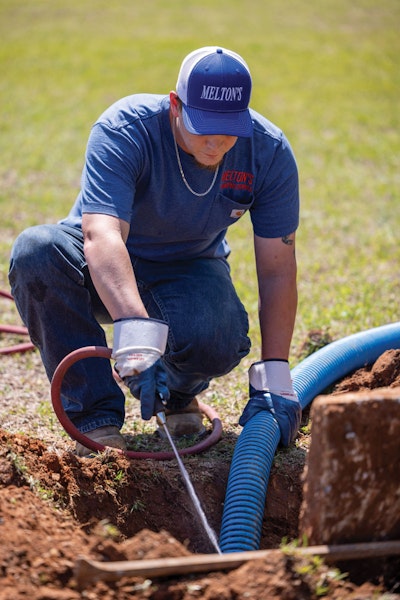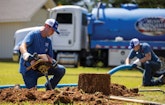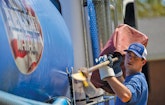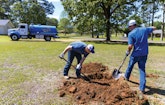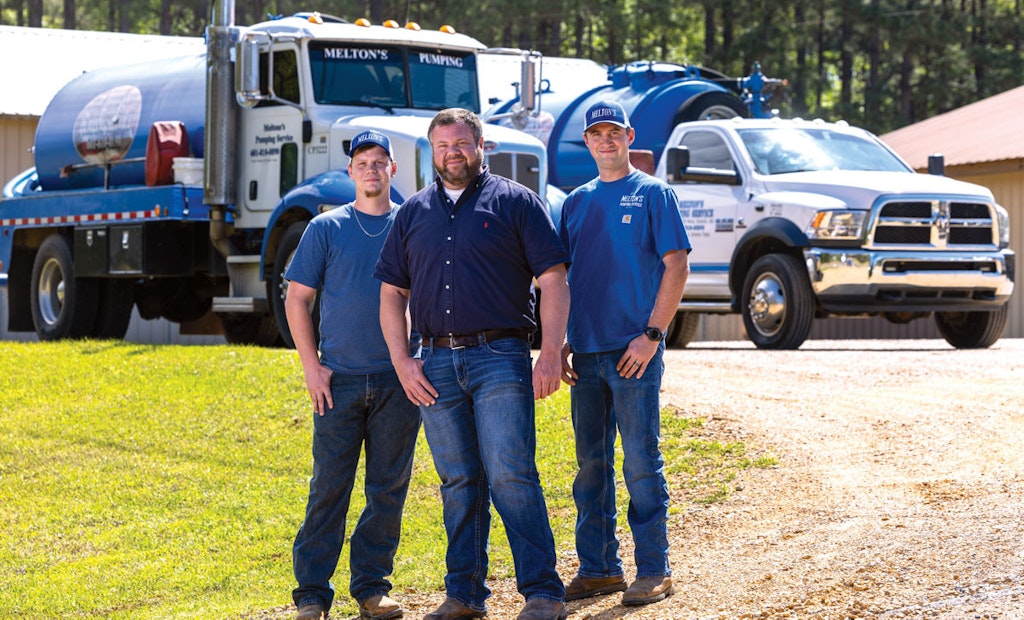
Steve Melton is shown with his technicians, Brandon Cooper, left, and Darrin Long. The fleet of vacuum trucks was built out by Iron-Vac and a local welding shop. Vacuum is provided by either a Masport pump or National Vacuum Equipment blower.
(Photos by Jeff and Meggan Haller)
When 18-year-old Steve Melton went to work for Wicker Building Supply in Summit, Mississippi in 1997, he ended up getting a lot more out of it than just a job. He soon fell in love with the owner’s daughter and a couple years later, he and Robin got married.
And a few months...
